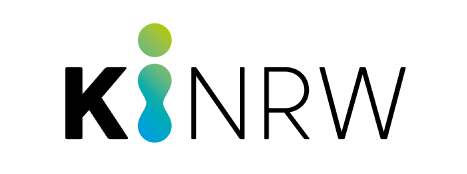AI.Highlights from NRW
Curated from the AI.Map
Selected examples of the North Rhine-Westphalian AI ecosystem
In this section, we highlight research projects and collaborations, as well as companies and products from NRW that are exemplary for what is possible through artificial intelligence. The AI highlights are characterized by the fact that they address socially relevant topics and challenges, contribute to sustainability, are particularly successful or have received awards.
These highlights show just how multifaceted NRW’s AI ecosystem is. Are you curious? You can find many more outstanding examples from the topic areas “Economy”, “Science ” and “Qualification” on the AI.Map containing more than 700 entries.
Learn more about NRW’s AI.Highlights:

Highlights – Spring 2024
Highlights – Summer/Autumn 2023
Highlights – Spring 2023
More ideas on the AI.Map
KI.NRW’s AI.Map provides a comprehensive overview of North Rhine-Westphalia as an AI location and creates visibility for AI experts from business, science and research. In this way, the KI.NRW competence platform helps to connect cutting-edge research, innovation and entrepreneurship and significantly contributes to establishing North Rhine-Westphalia as a nationwide leading location for applied artificial intelligence.